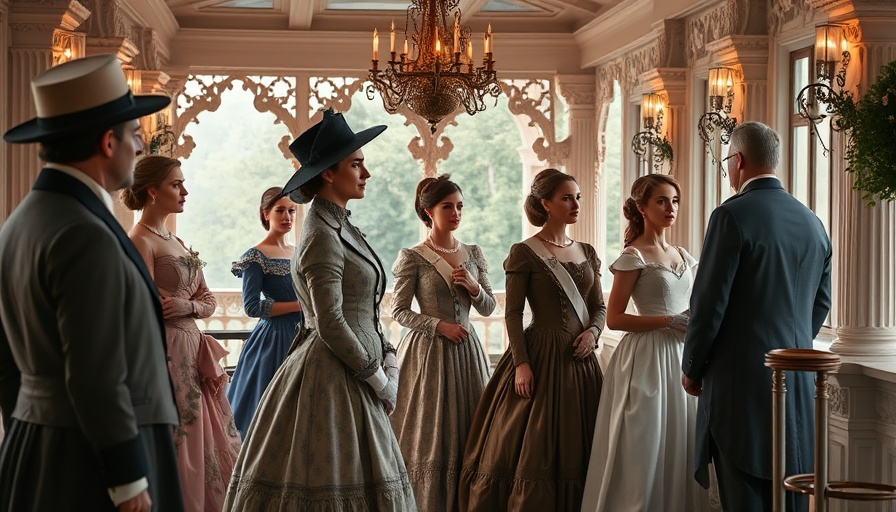
Reflecting on Our Current Gilded Age
Niall Ferguson, in his recent analysis, draws intriguing parallels between the late 19th century and today, suggesting that we find ourselves in a new Gilded Age marked by economic dynamism and stark inequality. With headlines buzzing about wealth disparity and social divisions, his insights are particularly relevant to high-income earners in Philadelphia who may feel the pulse of this new era.
The Economic Landscape: Then and Now
The original Gilded Age was characterized by rapid industrial growth, immense wealth for a few, and precarious living conditions for many. Similarly, in 2025, the economic landscape is marked by a burgeoning tech and finance sector, but is overshadowed by increasing concerns about wealth concentration and the health of small businesses. High wage earners, while thriving, are also witnessing rising living costs that affect their communities.
Social Dynamics: A Costly Elite Culture
HBO’s 'The Gilded Age' has expertly captured the essence of an elite class that, despite its lavish lifestyle, grapples with the same insecurities as today's elite. Ferguson points to a social milieu that revels in privilege yet is marked by hidden biases and neuroses. This resonates deeply with affluent individuals who navigate societal expectations and the pressure of maintaining status.
Cultural Reflections and Missteps
Ferguson's observations about the show's treatment of racial issues reveal a broader commentary on our own era. The show attempts to entertain while reflecting historical realities, albeit through a lens that may gloss over significant truths. For those in Philadelphia striving for social progress, it serves as a reminder that while representation has improved, it is crucial to acknowledge and address ongoing inequalities.
The Impact of Entertainment on Perceptions
The series invites viewers to indulge in nostalgia, yet also challenges them to critique the glamorization of a period rife with issues. As Ferguson notes, the allure of the past can distract from present-day realities. Engaging with this content critically can foster a more profound understanding of the social fabric that binds modern society, especially among the economically privileged.
Future Predictions: Navigating Change
As Ferguson suggests, we should remain vigilant as we traverse this modern Gilded Age. Economic dynamism is not sustainable without addressing the roots of inequality. Wealthy Philadelphians can play a vital role in shaping a more equitable future by advocating for policy changes that benefit marginalized communities, thus bridging the divide that defines this era.
Making Sense of Wealth Disparity
Understanding the nuances of wealth distribution involves recognizing the responsibilities that come with affluence. Advocating for local businesses, engaging in philanthropy, and participating in community liaisons can empower those with means to uplift those less fortunate. Discussions in spheres like Ferguson’s analysis and HBO’s portrayal foster awareness about how our choices impact the larger society.
The next steps towards a more equitable society begin with informed perspectives and action. For top wage earners in Philadelphia, this analysis highlights not just the stark realities of today's economic environment, but also the agency they possess to influence positive change. Engage, educate, and advocate for a fair future.
 Add Row
Add Row  Add
Add 




Write A Comment